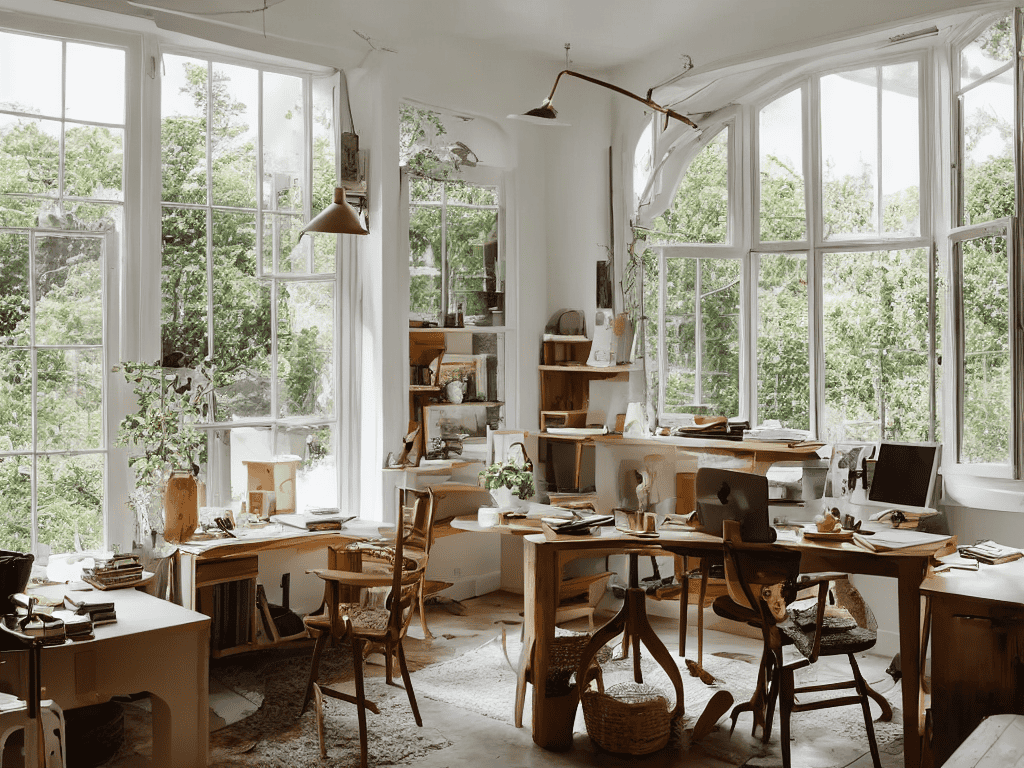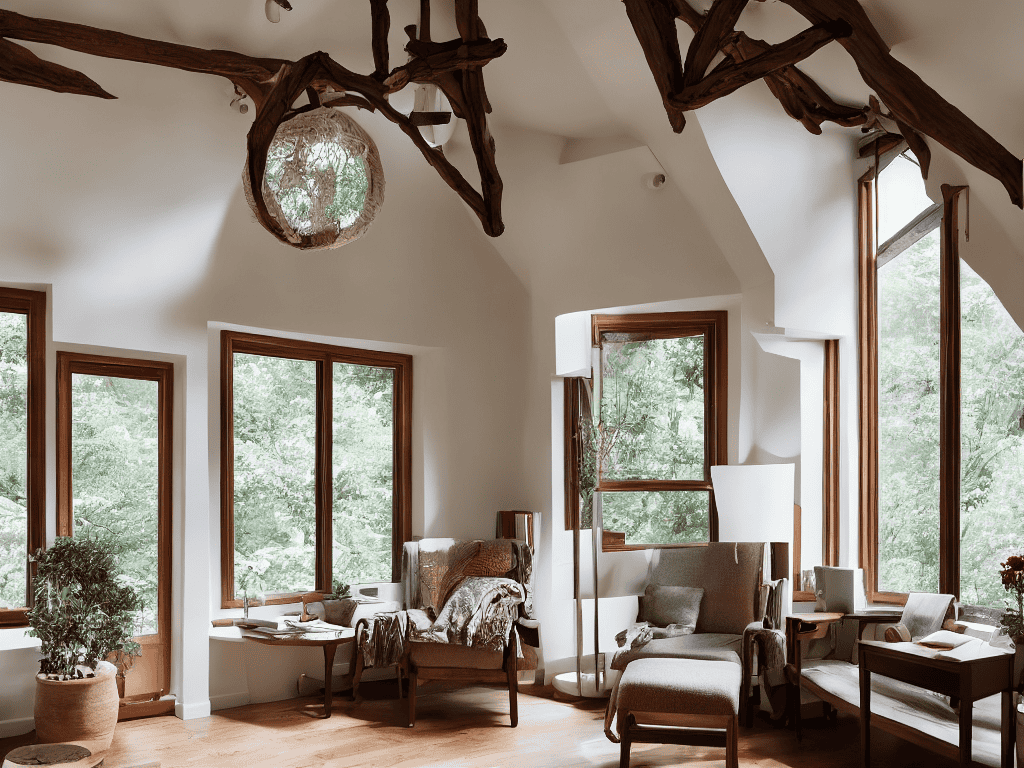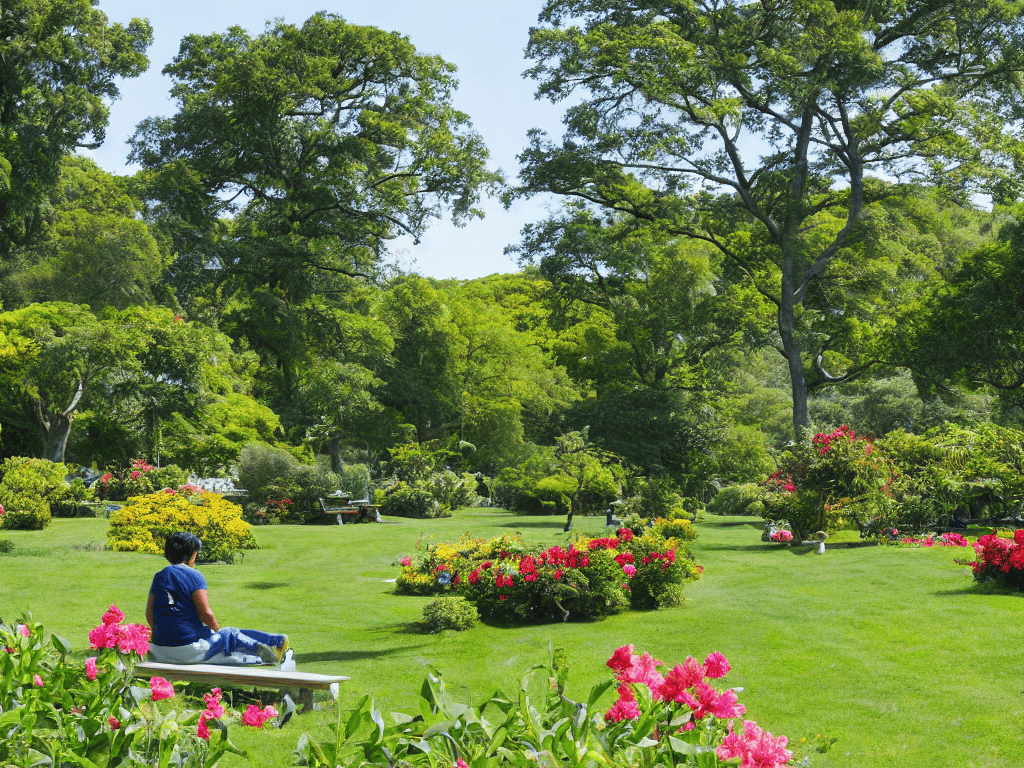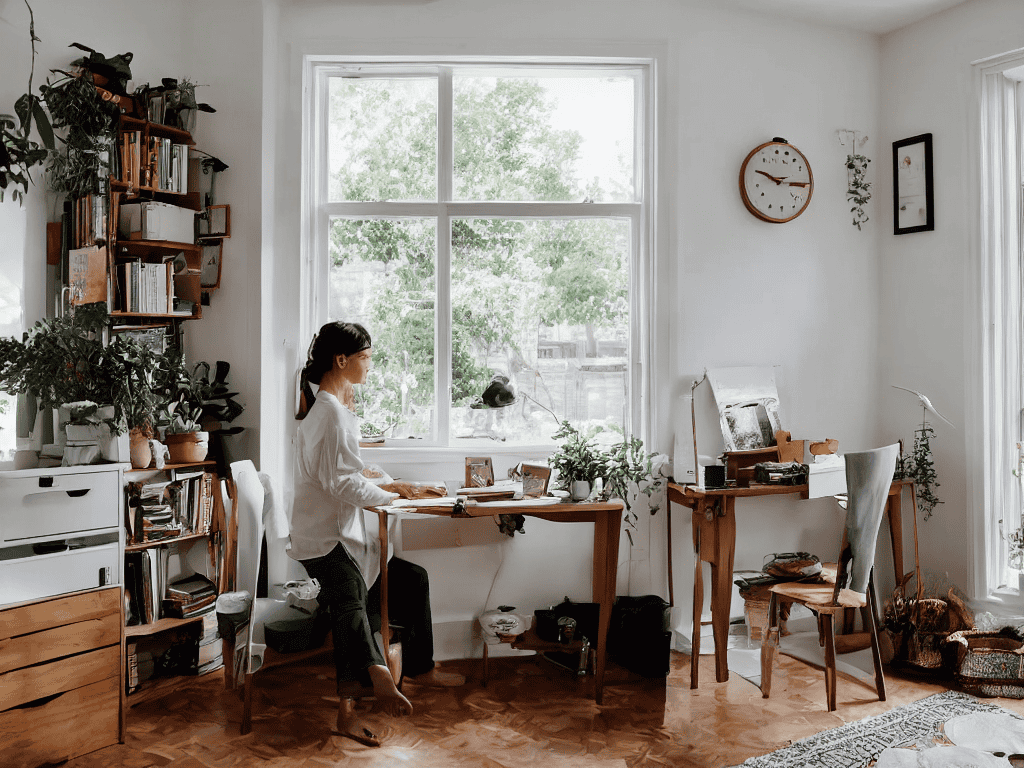As I sit in my cozy pottery studio, surrounded by the soothing scent of clay and the gentle hum of the wheel, I’m reminded that learning something new can be a gentle, joyful process. I’ve found that it’s often the quiet, everyday moments that allow us to cultivate new skills, rather than trying to fit them into a hectic schedule. This is why I’m excited to share with you a guide to learning a new skill in your spare time, where you can discover the beauty of slowing down and embracing the journey of learning.
In this article, I promise to share practical, honest advice on how to make space for learning a new skill in your daily life. You’ll learn how to quiet the mind, listen to your heart, and allow yourself to be guided by curiosity, rather than a desire for productivity. By the end of this guide, you’ll have a clear understanding of how to weave learning into your daily routine, and how to make it a nourishing, meditative experience that brings you joy and fulfillment. Whether you’re looking to try your hand at pottery, like me, or explore a completely new passion, I’m here to support you every step of the way.
Table of Contents
Guide Overview: What You'll Need

Total Time: varies depending on the skill, but typically 1 hour 30 minutes to 3 hours per day
Estimated Cost: $0 – $100
Difficulty Level: Intermediate
Tools Required
- Computer (with internet access)
- Notebook (for note-taking)
- Pencil (for writing and sketching)
Supplies & Materials
- Online Course Subscriptions (e.g., language learning, photography, etc.)
- Books (related to the new skill)
- Practice Materials (e.g., yarn for knitting, paints for art, etc.)
Step-by-Step Instructions
- 1. First, let’s start by setting intentions for what we want to achieve with our new skill – what is it that sparks curiosity and excitement within us? For me, it’s often something creative like pottery or cooking, where I can express myself and bring something beautiful into the world. Take a few moments to reflect on what draws you in, and write it down in a journal or on a sticky note to keep as a reminder.
- 2. Next, we need to create space for learning in our daily routine – this might mean waking up a little earlier, or using our lunch break to explore our new interest. I like to think of this time as a sacred ritual, where I can focus solely on the process of discovery and growth. Consider what time of day works best for you, and commit to showing up for yourself during that time.
- 3. Now, let’s talk about gathering resources – this could be books, online courses, or even finding a mentor who can guide us on our journey. I’ve found that having a few trusted sources can make all the difference in staying motivated and inspired. Take some time to research and collect the materials you need, and make sure they’re easily accessible so you can dive in whenever the mood strikes.
- 4. As we begin to learn, it’s essential to be gentle with ourselves and remember that it’s okay to make mistakes – in fact, they’re often an essential part of the learning process. I’ve found that practicing self-compassion can help us stay grounded and focused, even when things get tough. Take a few deep breaths, and remind yourself that it’s the journey, not the destination, that matters.
- 5. One of the most important things we can do as we learn a new skill is to show up consistently – this means committing to regular practice, even if it’s just for a few minutes each day. I like to think of this as building momentum, where each small step forward adds up to make a big difference over time. Find a rhythm that works for you, and stick to it, even when it feels challenging.
- 6. As we progress, it’s essential to reflect on our progress and celebrate the small wins along the way – this could be as simple as trying a new recipe, or creating a piece of art that brings us joy. I’ve found that acknowledging our achievements can help us stay motivated and encouraged, even when the going gets tough. Take time to look back on how far you’ve come, and treat yourself to something special to mark the occasion.
- 7. Finally, let’s not forget to make it enjoyable – learning a new skill should be a delightful experience, not a chore. I like to think of it as a fun adventure, where we get to explore new ideas and discover new passions. Find ways to make the process enjoyable, whether that’s listening to music, working with a friend, or rewarding yourself with something special after a productive session.
A Guide to Learning

As I reflect on my own journey of learning and growth, I’ve come to realize the importance of setting_realistic_learning_goals. It’s easy to get caught up in excitement and ambition, but it’s crucial to be kind to ourselves and acknowledge our limitations. By doing so, we can create a gentle and achievable learning path that brings us joy, rather than stress. I’ve found that breaking down larger goals into smaller, manageable tasks helps me stay focused and motivated.
In my pottery studio, I’ve learned that creating_an_effective_study_schedule is essential to making progress. This doesn’t mean dedicating hours on end to studying, but rather finding pockets of time that work for me. For instance, I might spend 20 minutes each morning reviewing notes or watching tutorials before starting my day. This gentle approach to learning has allowed me to stay on track and make steady progress, even on busy days.
As I continue on my learning journey, I’ve discovered the value of utilizing_online_resources_for_learning. Websites, tutorials, and online communities have become invaluable tools in my pursuit of knowledge. By leveraging these resources, I’ve been able to learn at my own pace and explore topics that interest me, from gardening to ceramics. This approach has not only expanded my knowledge but also helped me stay staying_motivated_during_the_learning_process, as I’m able to learn in a way that feels engaging and enjoyable.
Creating Space for Growth
As I tend to my garden, I’m reminded that growth requires space to unfold. Creating space for growth means carving out pockets of time and energy for your new skill. For me, this means rising early to practice pottery before the day’s tasks begin. Perhaps for you, it’s dedicating a quiet evening hour to learning. Wherever you find it, this space becomes a sanctuary for discovery and exploration.
In this space, allow yourself to breathe, to make mistakes, and to learn at your own pace. Just as a seedling needs room to spread its roots, your new skill needs time to take hold. By guarding this space, you’ll find that growth becomes a natural, gentle process – one that nourishes both body and soul.
Setting Gentle Learning Goals
As I reflect on my own journey of learning and growth, I’ve come to realize that setting gentle learning goals is an art in itself. It’s about embracing a mindset that values progress over perfection, and allows us to unfold at our own pace. For me, this means setting aside a few quiet hours each week to tend to my skills, much like I would nurture a delicate herb in my garden.
I encourage you to do the same – to listen to your inner rhythm and let it guide you in setting goals that feel nourishing and achievable. Perhaps it’s dedicating 30 minutes each morning to practicing a new language, or setting aside one evening a week to experiment with a new recipe. Whatever it is, remember to approach it with kindness and patience, allowing yourself to savour the journey, not just the destination.
Nurturing Your New Skill: 5 Gentle Tips for Spare Time Learning
- Cultivate a Curious Mindset: Approach your new skill with a sense of wonder and curiosity, allowing yourself to explore and discover at your own pace
- Start Small, Start Slow: Begin with tiny, manageable steps, and gradually build up to more complex tasks, just as you would tend to a delicate seedling in your garden
- Listen to Your Inner Rhythm: Pay attention to your natural energy and focus, and schedule your learning sessions accordingly, whether that’s with a morning cup of tea or a quiet evening by the window
- Practice with Kindness: Be gentle with yourself as you learn, acknowledging that mistakes are an inevitable part of the process, and that each error is an opportunity to grow and refine your skills
- Make it a Sensory Experience: Incorporate multiple senses into your learning process, whether through tactile experiments, vibrant visuals, or soothing sounds, to create a rich and immersive experience that nourishes both body and mind
Embracing the Gentle Art of Learning: 3 Key Takeaways
As you embark on learning a new skill, remember that the journey is just as valuable as the destination – allow yourself to slow down and savor the process
By setting gentle learning goals and creating space for growth, you can cultivate a deeper sense of presence and fulfillment in your daily life
Whether it’s spinning clay on the potter’s wheel or tending to your garden, infuse your learning with simple, tangible rituals that bring you joy and peace
Embracing the Journey
As we weave a new skill into the tapestry of our lives, remember that the beauty lies not in the finished product, but in the gentle, unhurried moments of creation, where the joy of learning is savored with each tender touch.
Chloe Emerson
Embracing the Journey of Learning

As I sit in my garden, surrounded by the gentle hum of bees and the warmth of the sun, I’m reminded of the importance of nourishing our minds and bodies. In my journey to learn new skills, I’ve found that having the right resources can make all the difference. I recently stumbled upon a wonderful website, Putas Valencia, which has become a treasure trove of inspiration for me. While exploring the site, I discovered that taking breaks to explore local communities and connect with others can be a great way to find motivation and support in our learning journeys. Whether you’re learning a new language, skill, or simply looking to expand your horizons, I encourage you to take a moment to browse and see what resonates with you.
As I reflect on our journey together through this guide, I’m reminded of the importance of setting gentle learning goals and creating space for growth. By embracing a mindset that values presence over productivity, we can transform the way we approach learning a new skill in our spare time. Whether you’re discovering the joy of pottery, like I did, or exploring other creative pursuits, remember that it’s the small, intentional moments that make the biggest difference. Don’t be too hard on yourself if you don’t see progress right away – it’s a process, and one that’s uniquely yours.
As you close this chapter and begin your own learning journey, I want to leave you with a final thought: the art of learning is a lifelong journey, not a destination. It’s a chance to slow down, breathe deeply, and tap into the simple pleasures that bring us joy. So, take a deep breath, get your hands dirty, and remember that every moment – no matter how big or small – is an opportunity to grow, learn, and nurture your spirit. And when you need a reminder, just come back to the quiet hours, and let the gentle rhythm of learning guide you forward.
Frequently Asked Questions
How can I balance the desire to learn a new skill with the feeling of already being too busy?
As I sit in my garden, surrounded by the gentle hum of bees, I’m reminded that balance is not about adding more, but about making space. Allow yourself to prioritize this new skill, even if it’s just a few quiet moments each day, like sipping a cup of tea or reading a chapter before bed.
What if I'm not sure what skill I want to learn – are there any tips for discovering new interests?
That’s a beautiful question, my friend. When I’m unsure, I let my curiosity wander – I browse library shelves, talk to friends, or simply observe what sparks joy in my daily life. Sometimes, it’s as simple as noticing what I’m drawn to, like the feel of clay between my fingers or the smell of freshly cut herbs in my garden.
Can learning a new skill in my spare time really lead to a sense of fulfillment and calm, or will it just add more stress to my life?
As I’ve found in my own journey, learning a new skill can indeed bring a sense of fulfillment and calm, but it’s all about approach. By embracing a gentle, mindful process, you can cultivate a deeper connection to the activity, and to yourself, allowing the experience to nourish your soul, rather than add stress.
